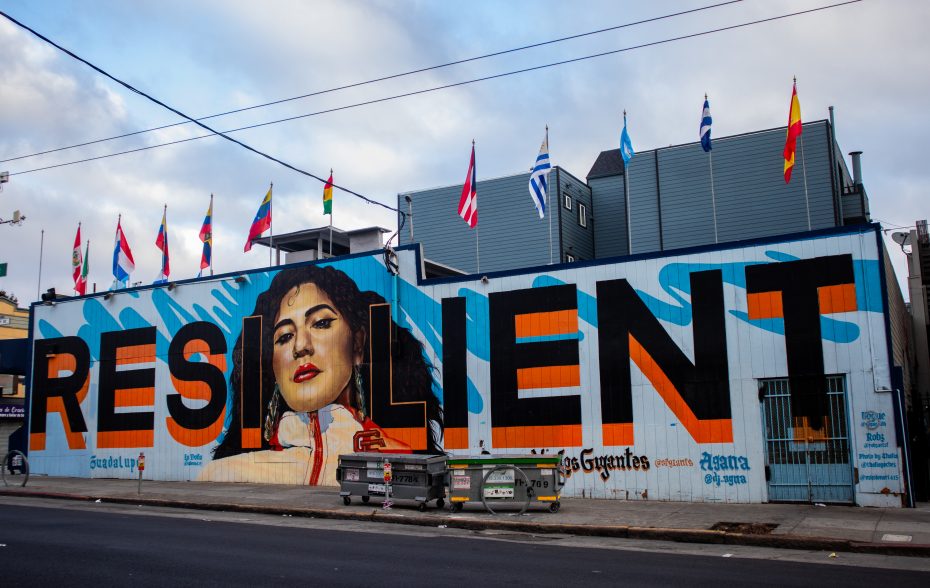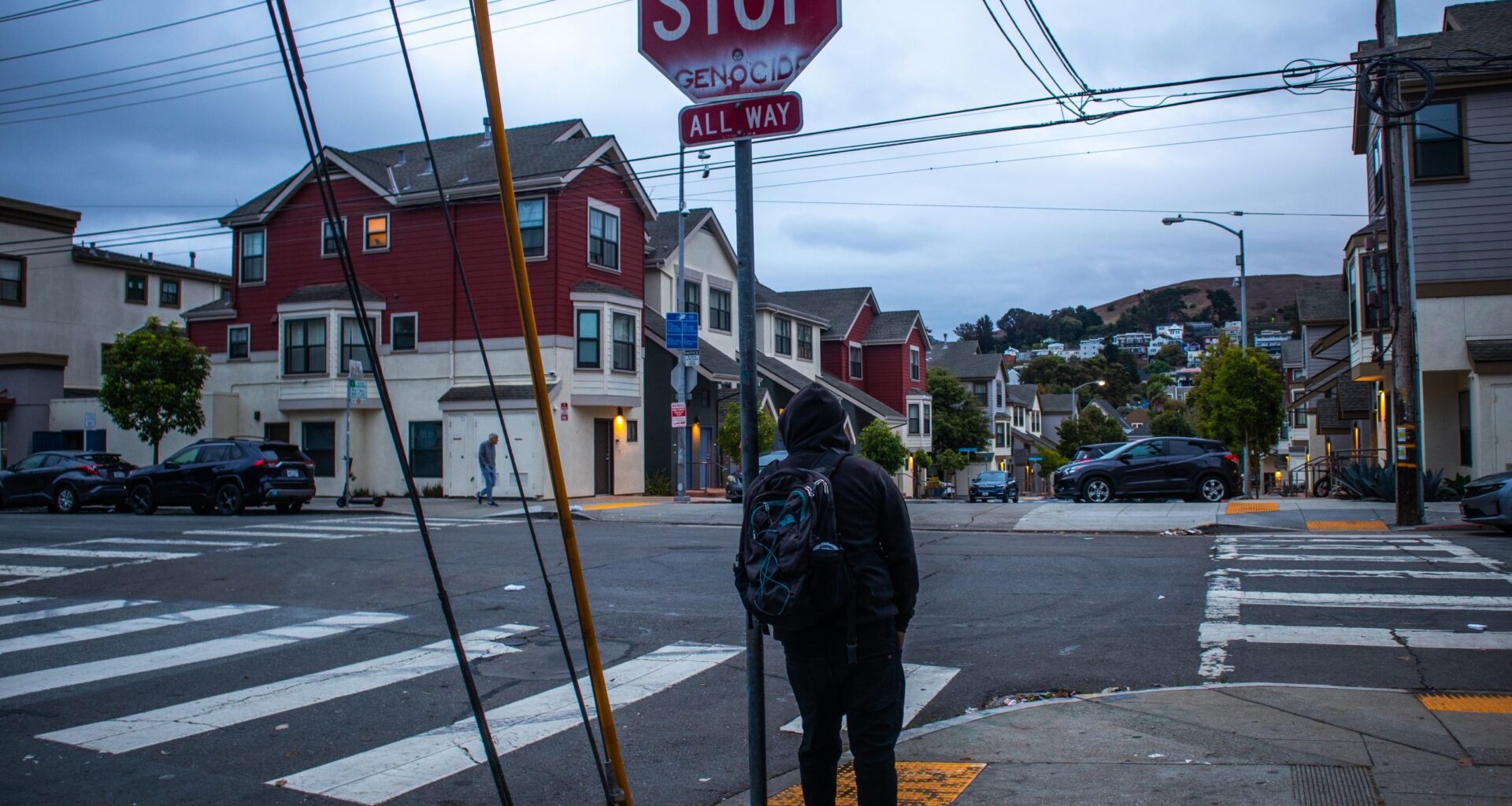
Sign up below to get Mission Local’s free newsletter, a daily digest of news you won’t find elsewhere.
When a truck pulls up in search of day laborers in the Mission District, they rush to be the first in. Those who are more cautious ask how much the patrón, employer, is willing to pay.
But getting hired does not always guarantee cash. After 17 days on a job doing grueling cement laying, day laborer Alfredo says he was only paid for four. When he spoke up, the contractor threatened to call Immigration and Customs Enforcement.
“He said that if I kept asking for the money, he would call ICE on me, because he knows where I live,” Alfredo said in Spanish. The next day, fear kept him from showing up to his usual spot where he waits for work.

Want the latest on the Mission and San Francisco? Sign up for our free daily newsletter below.
So far, life in the United States is nothing like Alfredo expected. He is one of the dozens of people — many Latino and undocumented — who look for work as day laborers. They wait on street corners as early as 6:30 a.m, often seven days a week.
Mission Local spoke with 10 undocumented workers — many of whom requested anonymity — and they all echoed a similar story: inconsistent work, but consistent wage theft.
John Logan, chair of the department of labor and employment studies at San Francisco State University, says that wage theft among day laborers “has been an ongoing problem for a very long time.”
But given the federal crackdown on immigration, Logan says, employers have “basically been given a green light by the Trump administration” to knowingly hire undocumented workers with the goal of exploiting them.
David Valencia, program manager of the Mission Action day-labor program, added that workers have long feared speaking up about workplace injustices, even before the Trump administration.
Many are unaware of San Francisco labor laws, and accept less than minimum wage from employers simply because they need the money. A language barrier, he said, often prevents them from effectively standing up to their employers.
Valencia added that Mission Action supports day laborers who have experienced wage theft by working with San Francisco’s Office of Labor Standards Enforcement.
He said the organization files about two to three wage-theft-related cases with the enforcement agency per month, but that many go unreported by day laborers, who are more concerned about their immigration status.
Alfredo, who came from Guatemala a little over a year ago, joined Mission Action’s day-labor program, which connects employers with day laborers through a formal process. The program requires that employers pay all workers a minimum of three hours, at $30 an hour, on any job.
He looks for work on the street because he only gets a job from Mission Action about once a month. When an employer contacts Mission Action, the workers at the top of the rotating list of members are hired first. With 80 active members in the program, people can wait for their turn at a job for weeks.
Despite a varied set of skills in gardening, moving and painting, Alfredo has gone without work for weeks on end. Even when hired, he said, some employers have tried to take advantage of him and others who are undocumented.
“There are some employers that think they’re sharp,” said Alfredo. “They want to pay less than minimum wage for very difficult jobs because they know there’s a need for work.”
Alexander, a 19 year-old from Mexico, arrived in the United States just three months ago. He came with hopes of a better financial future and applied for jobs in the city. When he couldn’t get hired, he started looking for work in the Mission as a day laborer, where he’s also had little success.
When asked if he specializes in a type of work, Alexander said, “Lo que caiga” — whatever comes my way. The teen worked for two weeks on a construction job for an employer who paid him $100 a day for 13 hour days.
The city organizations tasked with helping the undocumented work force say they are strapped. In July 2024, Mission Action, for example, lost nearly $1 million in city funding, with $100,000 in cuts directly impacting job dispatch and outreach within its worker center program.
Now, the organization is placing an emphasis on community meetings, educating day laborers on their rights and how to perform jobs with high quality, which makes it easier to get re-hired.
Those who wait on street corners, said Valencia, prefer the quantity of potential jobs over waiting for a job through Mission Action, though “pay will be a lot less.” Still, he added that the organization tries to reach out to and educate laborers who solely look for work on the streets.
 A mural reads “Resilient” in the Mission District, one of the many neighborhoods where day laborers look for work in San Francisco. Photo by Mariana Garcia.
A mural reads “Resilient” in the Mission District, one of the many neighborhoods where day laborers look for work in San Francisco. Photo by Mariana Garcia.
Making matters worse is a diminishing demand for jobs. Mission Action, Valencia said, doesn’t have as many contractors requesting laborers as in previous years.
Another day laborer with the program, Eduardo, previously worked in restaurants as a busser, but was laid off in May and hasn’t found work since. He signed up for the day-labor program in hopes of making money, but has only had one job in the last three months.
“I regret having come here,” he said in Spanish.
Eduardo fled El Salvador in 1990 and applied for political asylum in the United States. When asked about fears of ICE among the day laborer community, Eduardo seemed aware of the risks, saying simply that there’s work to be done. “The fear is always there, no?”
After 35 years, he admits regret having come to the U.S. He plans on returning to El Salvador next year, saying it would cost too much to renew his green card.
The city has several resources for day laborers.
Mission Action’s day labor program can be reached at 415-252-5376 or 415-252-5375. Those looking to hire workers can schedule an appointment on Mission Action’s website or by calling the number listed.
Calma, a volunteer run organization with a day laborer outreach program provides essentials like protective equipment, food and water to day laborers in the San Francisco area on the first Saturday of every month. You can contact them at daylaborer@calmaofficial.org.
We’re almost halfway to our goal
We’ve raised nearly half of our $300,000 goal to cover immigration for the next three years of Trump’s term.
Donate below to keep us at the immigration courthouse and on the streets, covering ICE’s actions in San Francisco.

